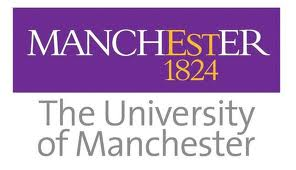




TLDR: Fully-funded PhD scholarship on the application of transfer learning to Bayesian Optimization in the context of Computational Fluid Dynamics
Supervisors: Saleh Rezaeiravesh and Manuel López-Ibáñez (University of Manchester)
Application deadline: Friday, December 5, 2025
Start date (if accepted): September 2026
Read about the project (below) first. Position is open now, application deadline is December 5 2025, start date is September 2026.
Applications are sought from talented and motivated candidates with an academic background in at least one of these fields: Computer Science, Mathematics, Statistics, Operations Research, Data Science, Machine Learning, Industrial / Business Engineering or Business Analytics. Applicants must have a First or Upper Second Class Honours degree (or equivalent) and hold or expect to obtain a Masters level qualification with Distinction. English Language requirements (where required) are IELTS 7.0, TOEFL 623 (100 ibt), PTE 76.
Please apply under the University of Manchester application portal and select ‘PhD in Artificial Intelligence’
When applying, you’ll need to specify the full name of this project, the name of your supervisor, if you already having funding or if you wish to be considered for available funding through the university, details of your previous study, and names and contact details of two referees.
Your application will not be processed without all of the required documents submitted at the time of application, and we cannot accept responsibility for late or missed deadlines. Incomplete applications will not be considered.
After you have applied you will be asked to upload the following supporting documents:
Apply here: https://www.ai-decisions-cdt.ac.uk/apply/
For any questions please contact the UKRI AI Decisions CDT Team (aidecisionscdt@manchester.ac.uk)
In many fields, including CFD (computational fluid dynamics) problems, the use of Bayesian Optimisation (BO) leads to faster experimentation, prototyping and analysis.
Bayesian Optimisers are data-driven methods that incrementally build surrogate models. However, building accurate surrogate models often requires expensive simulations and laboratory experiments. Even small changes of the conditions under which the data was collected may alter the landscape modeled by the surrogate, which would require collecting new data and rebuilding the surrogate from scratch. If building the original surrogate was very costly and the new landscape is closely related to the previous one, throwing it away is a net loss. In such scenarios, transferring the original model to the new landscape may significantly reduce the amount of new data that needs to be collected to obtain an acceptably accurate model. We have recently proposed using a small sample of new data to transfer already trained surrogate models to a new landscape by optimising affine and nonlinear domain warping transformations.
The goal of this project is to further expand the capabilities of the transfer learning by researching more flexible and more efficient transfer techniques in the domain of CFD, where each new data point may require a costly simulation or real-world experiment. Practical use will also require ML techniques that can intelligently decide when active learning may be beneficial and when the model cannot be transferred to the new setting. Finally, the project will also investigate how to extend these techniques to ensembles of trained models rather than one model at a time.
Y. Morita, S. Rezaeiravesh, N. Tabatabaei, R. Vinuesa, K. Fukagata, P. Schlatter, Applying Bayesian optimization with Gaussian process regression to computational fluid dynamics problems, Journal of Computational Physics, 2022. https://doi.org/10.1016/j.jcp.2021.110788
Shuaiqun Pan, Diederick Vermetten, Manuel López-Ibáñez, Thomas Bäck, and Hao Wang. 2025. Transfer Learning of Surrogate Models: Integrating Domain Warping and Affine Transformations. In Proceedings of the Genetic and Evolutionary Computation Conference Companion, Association for Computing Machinery. https://doi.org/10.1145/3712255.3734291
Last modified: 4 November 2025